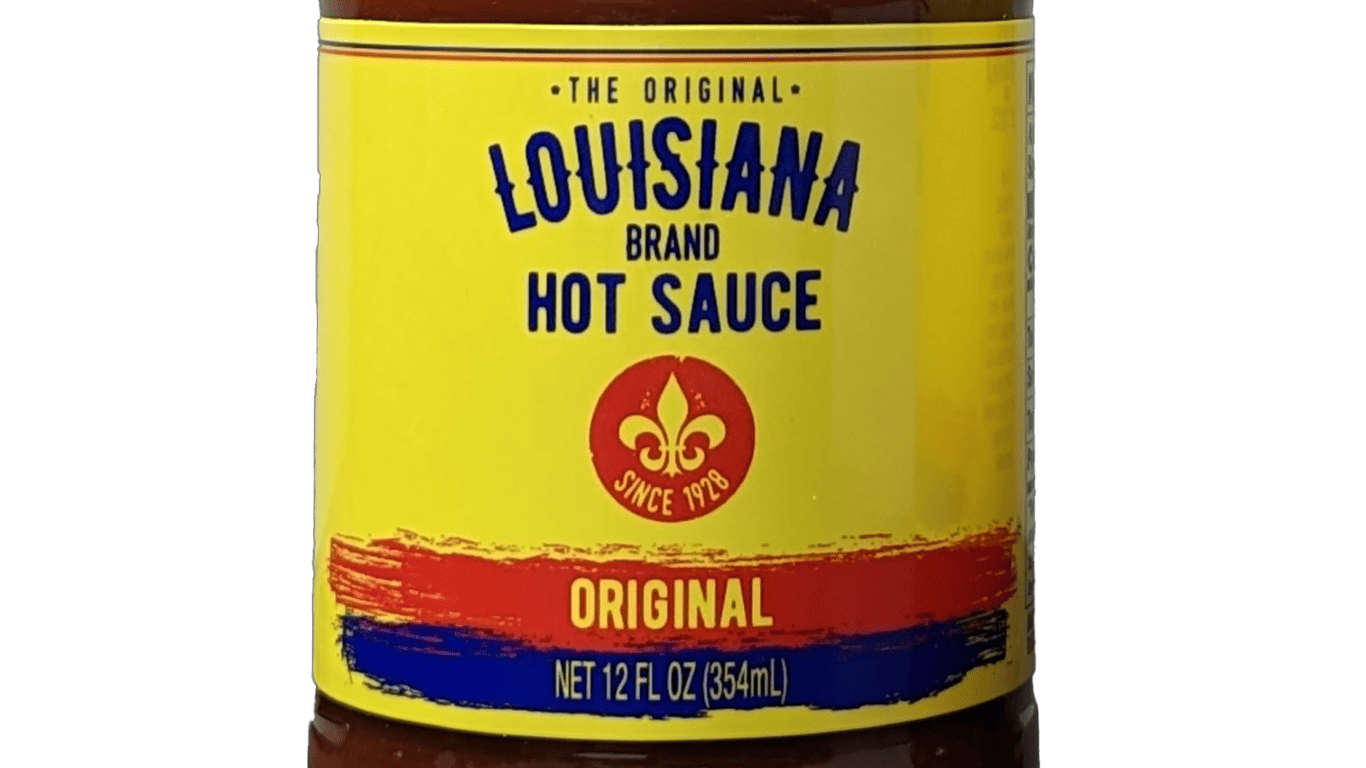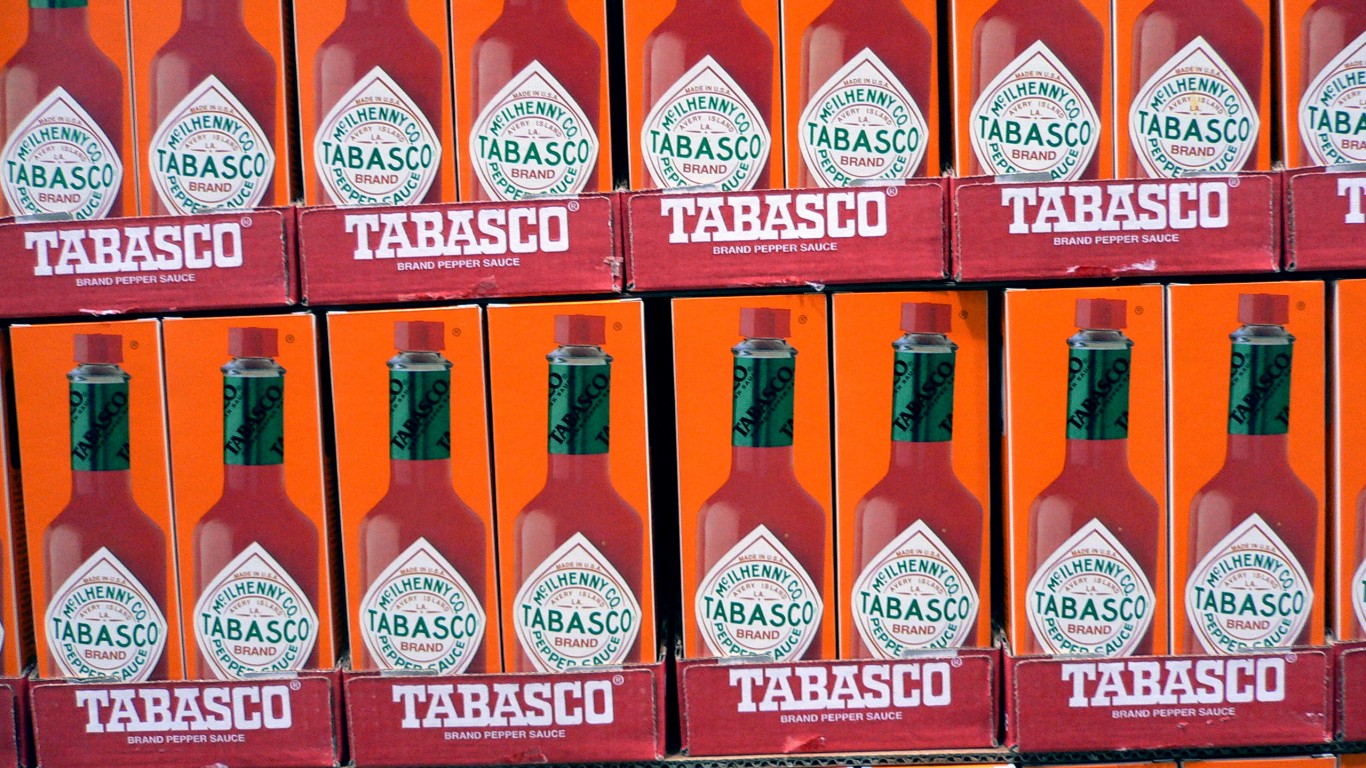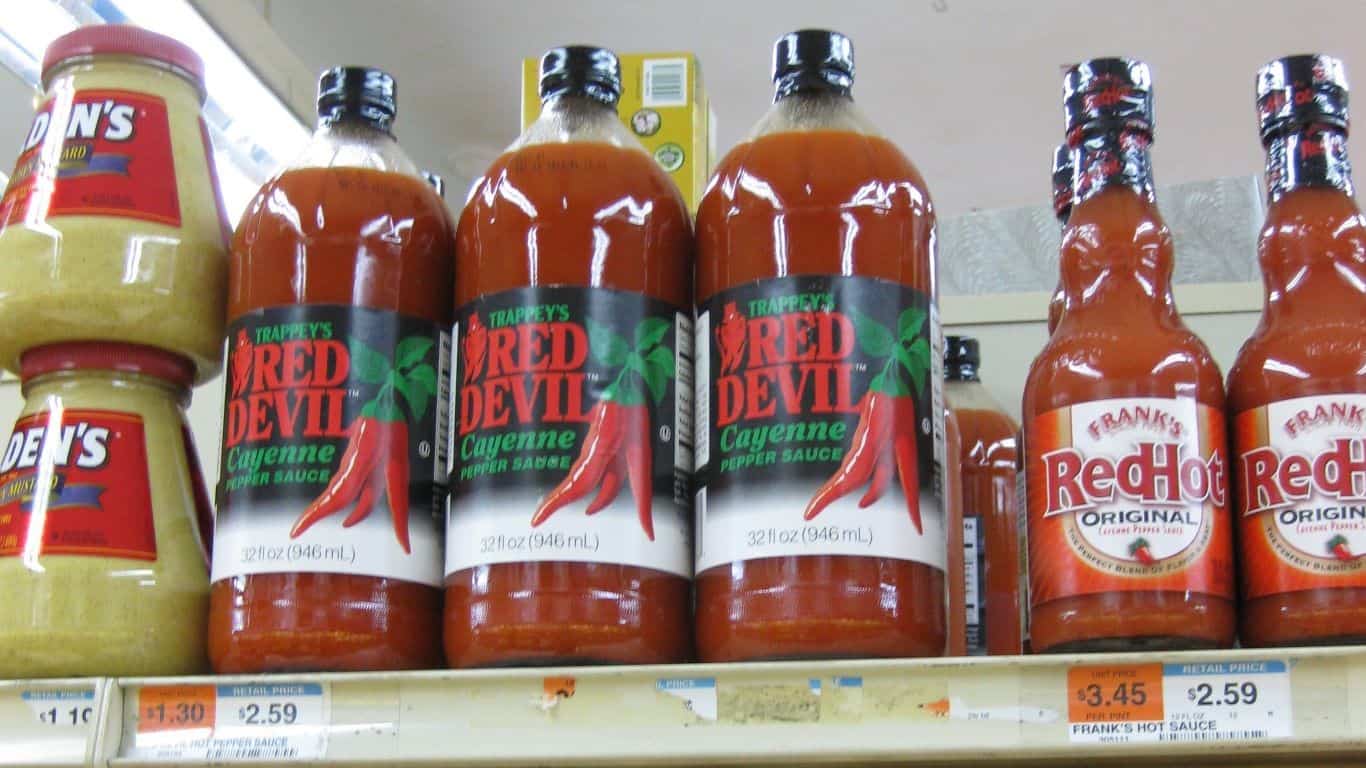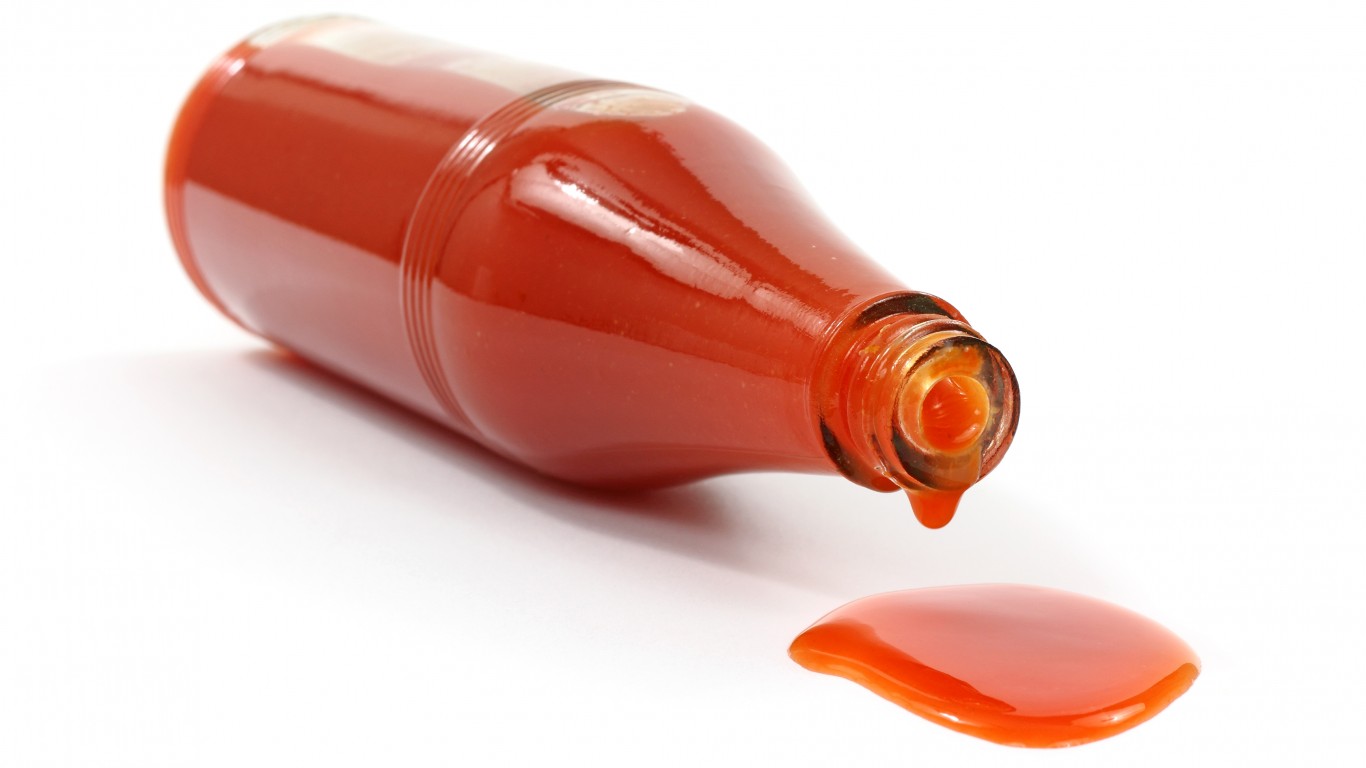
It has been estimated that about three in four Americans claim to like hot sauce, and almost half use it at least weekly. There are dozens of types of hot sauce, including Louisiana-style, picante, and sriracha, used as condiments, cooking ingredients, and marinades. There are also hundreds of brands, with dozens more seeming to pop up (at least briefly) every year. These often boast strange flavors, amusing labels, and claim to be hotter than all the rest.
If there is anything more common than hot sauce varieties, it may be opinions about them. The internet is rife with rankings, reviews, and lists of favorite hot sauces or those that are the “worst.” These opinions come from institutions and reputable journalists to ordinary people sharing their favorites and tasting experiences.
The 10 hot sauces featured here are some of the most popular and widely available in the United States. Yet they are ones that many consumers try to avoid for a variety of reasons. Those include flavor preferences, use of objectionable ingredients, perceived quality, and price. These sauces range from 350 (very mild) to 135,000 (uncomfortable) Scoville units, a measure of their spiciness or “heat” based on the concentration of capsaicinoids.
Crystal Hot Sauce
- Producer: Baumer Foods, Reserve, Louisiana
- Main ingredients: aged red cayenne peppers, distilled vinegar, natural flavorings
- Avg. Scoville units: 4,000
This Louisiana hot sauce has been produced by the same family-owned company since 1923, though the factory moved from New Orleans following Hurricane Katrina. Its feature product has been described as having more chile and less vinegar flavor than rival Tabasco. But some consumers also consider it too thin and watery, with low heat and flavor that quickly fades.
Da Bomb Beyond Insanity

- Producer: Spicin Foods, Kansas City, Kansas
- Main ingredients: habanero peppers, chipotle puree, orange juice concentrate, natural pepper flavoring, tomato paste
- Avg. Scoville units: 135,000
Made famous by the YouTube celebrity interview show “Hot Ones,” this hot sauce is well known for its high heat, harshness, and chemical aftertaste. If that weren’t enough of a turn-off, it also includes artificial ingredients potassium sorbate (a food preservative and potential allergen) and sodium benzoate (also a preservative). It’s not too hard to imagine that users are into this one more to show off than for regular enjoyment.
Huy Fong Sriracha
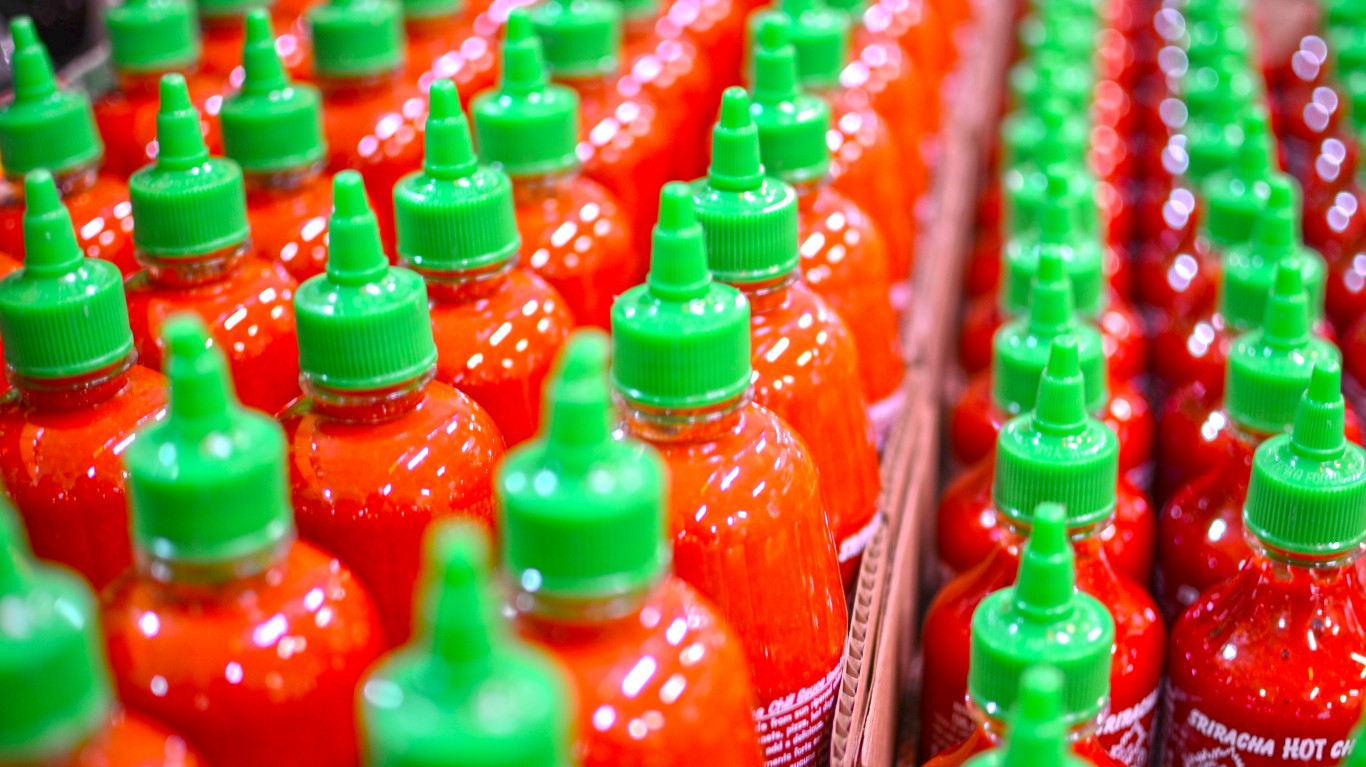
- Producer: Huy Fong Foods, Irwindale, California
- Main ingredients: chili, sugar, garlic, distilled vinegar
- Avg. Scoville units: 2,200
This popular Vietnamese-style sriracha sauce famously suffered from a pandemic-related shortage, but bottles, with their recognizable rooster logo, have returned to supermarket shelves. It was created in 1980 and has grown into one of America’s most popular condiments. A peek at the ingredients list reveals that it contains artificial ingredients potassium sorbate, sodium bisulfate (an acidic food additive), and xanthan gum (a thickener linked to digestive issues). Detractors call this sauce ketchupy, too sweet, and overrated.
Original Louisiana Brand
- Producer: Summit Hill Foods, New Iberia, Louisiana
- Main ingredients: aged cayenne peppers, vinegar
- Avg. Scoville units: 450
This hot sauce was first marketed in 1928, and its current owner purchased the brand in 2015. The sauce is still produced in Louisiana (though the company is headquartered in Georgia) using the same simple recipe and aging process. The brand’s slogan is “not too hot, not too mild,” though its Scoville rating (one of the lowest among major brands) suggests a lack of heat. Having one of the highest sodium levels among major brands may also have some consumers looking elsewhere.
Siete Hot Sauce

- Producer: Siete Foods, Austin, Texas
- Main ingredients: apple cider vinegar, jalapeno pepper, golden beets, puya pepper, sea salt, flax seeds, garlic, chia seeds, oregano, orange peel
- Avg. Scoville units: n/a
Varieties of this more upscale offering can be found in national grocery store chains. It is an oddball on this list, given those ingredients. Yet, the flavor has been described as underwhelming in terms of complexity. Consumers who do not love it may consider it too pricey. Still, the family-owned business produces many other Mexican-American food products that it claims are healthy and delicious.
Tabasco
- Producer: McIlhenny Company, Avery Island, Louisiana
- Main ingredients: tabasco peppers, vinegar
- Avg. Scoville units: 2,500 to 5,000
This world-famous and best-selling hot sauce dates back to 1868, and the founding family still runs the company. It produces a number of sauces and other products, but the original hot sauce was said to be popular with astronauts and with Queen Elizabeth II. While Tabasco may seem ubiquitous, some hot sauce aficionados feel the flavor is uninspired. Others say it is all heat and no flavor, with the heat lingering unpleasantly.
Tapatío
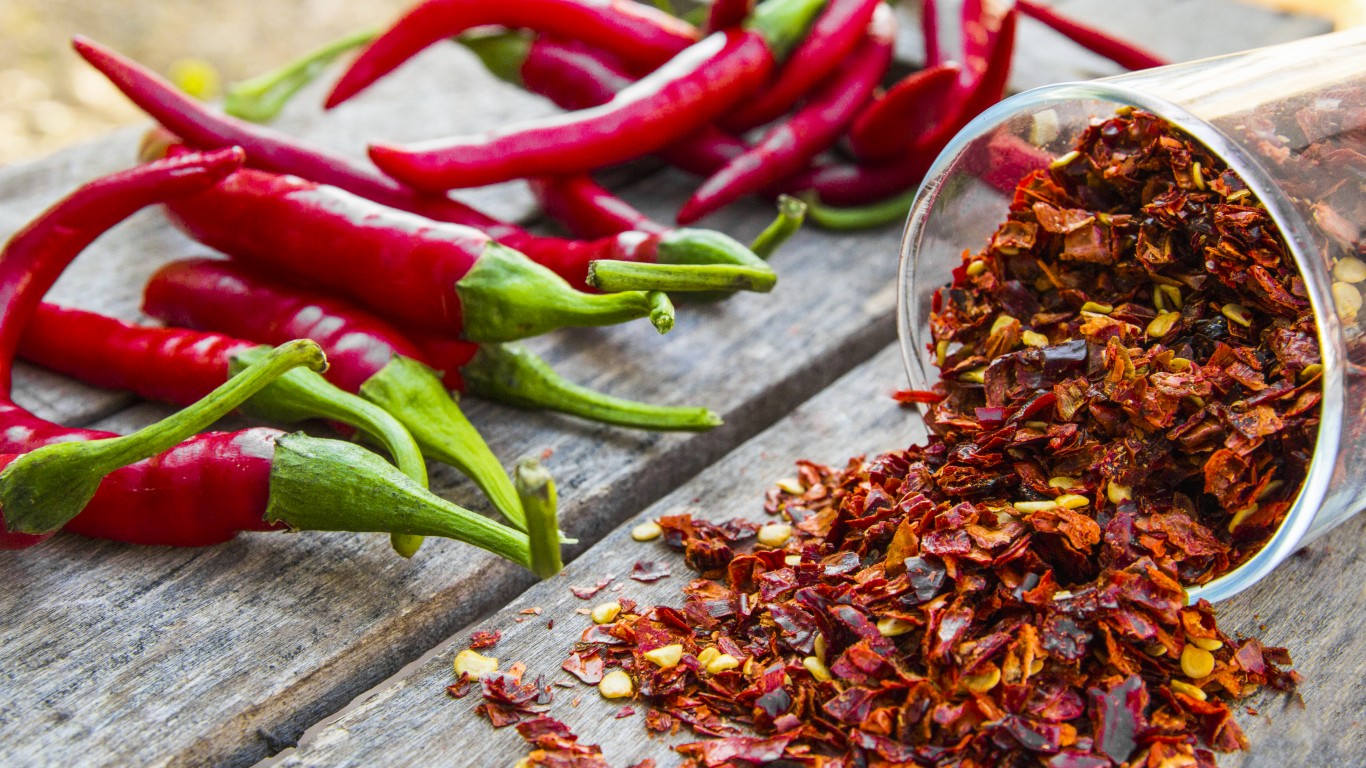
- Producer: Tapatío Hot Sauce Company, Vernon, California
- Main ingredients: red peppers, spices, garlic
- Avg. Scoville units: 3,000
This salsa picante-style hot sauce is popular predominantly among Mexican-American communities in the United States, but the company’s offerings are also sold in Canada, Central America, and Australia. Those who love this hot sauce can even find Tapatio-flavored ramen. Others may be turned off by its high sodium content and use of xanthan gum and sodium benzoate. Like some other products on this list, users may consider this sauce too watery (despite the xanthan gum) for use on handheld foods.
Texas Pete
- Producer: TW Garner Food Company, Winston-Salem, North Carolina
- Main ingredients: vinegar, aged peppers
- Avg. Scoville units: 340 to 740
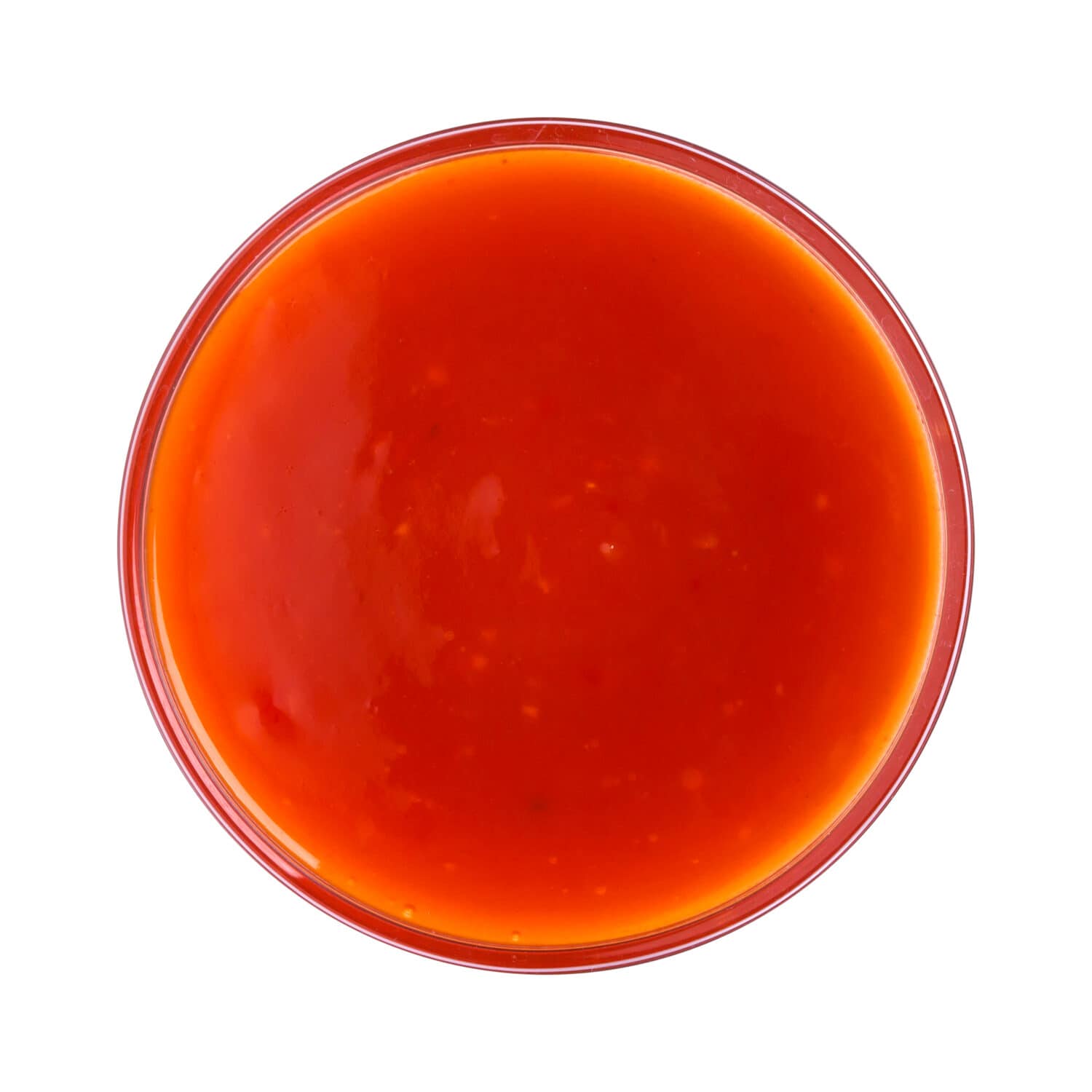
Trappey’s Red Devil Cayenne Pepper Sauce
- Producer: B&G Foods, Parsippany, New Jersey
- Main ingredients: distilled vinegar, red cayenne peppers
- Avg. Scoville units: 800 to 1,200
This is another mild and versatile hot sauce. It dates back to 1898, though the brand was sold to its current owner, B&G Foods (maker of Cream of Wheat, Crisco, Green Giant and many other brands), in 1997. Reasons that some hot sauce consumers avoid this brand include its high sodium content and inclusion of guar gum (a thickener linked to digestive issues), xanthan gum, ascorbic acid, and red 40 (an artificial color that may contain carcinogens), as well as its low heat and lack of flavor complexity.
El Yucateco Red Habanero

- Producer: El Yucateco, Kanasín, Yucatan Peninsula of Mexico
- Main ingredients: habanero pepper, tomato, spices
- Avg. Scoville units: 7,600 to 9,500
This hot sauce has been popular since 1968 and can be found in many restaurants and supermarkets, including Walmart. The red sauce is hotter than the green variety, but not nearly as hot as El Yucateco XXXtra Hot Habanero Sauce. Suggested pairings include seafood and in Bloody Mary cocktails, as this sauce is very versatile. Unfortunately, it includes artificial ingredients xanthan gum and sodium benzoate as well. Red 40 artificial food coloring also has some choosy host sauce users searching elsewhere for their hit of heat.
100 Million Americans Are Missing This Crucial Retirement Tool
The thought of burdening your family with a financial disaster is most Americans’ nightmare. However, recent studies show that over 100 million Americans still don’t have proper life insurance in the event they pass away.
Life insurance can bring peace of mind – ensuring your loved ones are safeguarded against unforeseen expenses and debts. With premiums often lower than expected and a variety of plans tailored to different life stages and health conditions, securing a policy is more accessible than ever.
A quick, no-obligation quote can provide valuable insight into what’s available and what might best suit your family’s needs. Life insurance is a simple step you can take today to help secure peace of mind for your loved ones tomorrow.
Click here to learn how to get a quote in just a few minutes.
Thank you for reading! Have some feedback for us?
Contact the 24/7 Wall St. editorial team.

